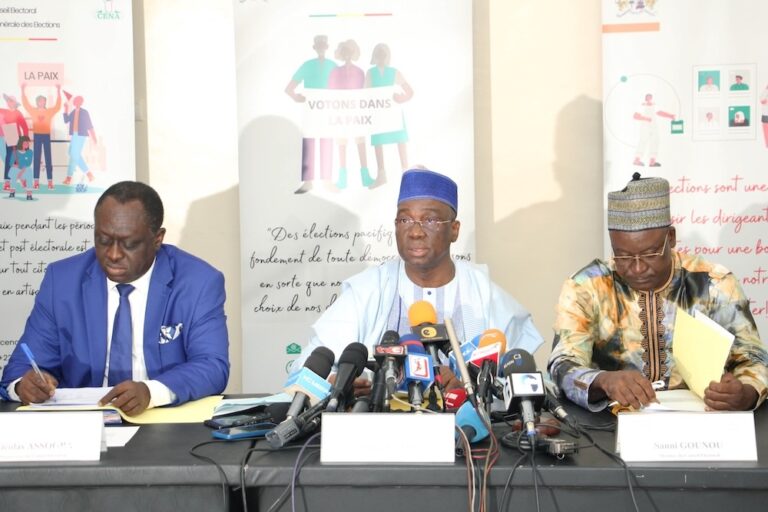(WAJA/IFEX) – On 22 to 25 February 1999, a WAJA conference on children and the media will coincide with the association’s fourth triennial Congress in Banjul, The Gambia. It has become paramount to focus on children rights following the IFJ’s 23rd Congress in Recife, Brazil, where this issue was examined in detail. It is evident […]
(WAJA/IFEX) – On 22 to 25 February 1999, a WAJA conference on children and
the media will coincide with the association’s fourth triennial Congress in
Banjul, The Gambia.
It has become paramount to focus on children rights following the IFJ’s 23rd
Congress in Recife, Brazil, where this issue was examined in detail. It is
evident that the media in West Africa have not given prominence to
children’s rights, which should form the core of any advocacy of human
rights. West African children are indeed very vulnerable, their plight
ignored as the media of the region focus on high politics. The phenomena of
street children, child labour, illiteracy and exploitation of children in
conflict in war situations have not been adequately covered by the West
African media. There is therefore the need to bring together West African
journalists to discuss these issues as a way of sensitising the media to
give proper and adequate coverage to children’s rights.
A special segment of the Banjul conference will be the role of women in the
media. At the Dakar conference in 1986, delegates stressed the need for
effective participation of women in the West African media. Accordingly,
more women delegates will be invited to the Banjul conference. It is planned
to have a leadership forum for women during the conference.
Aims and objectives of the conference/congress:
A:
journalists
Recife,
Brazil in 1998
B:
C:
Methods and strategy:
As a prelude to the Conference on children’s rights and the media, WAJA will
commission a study of media coverage of children in four countries: Senegal,
La Côte D’Ivoire, Liberia and Ghana. The reports of these surveys will be
discussed at the conference in special sessions and syndicated group
discussions on various sub-topics of the main theme. Three days of the
conference/congress period will be devoted to the main conference, while one
day will be devoted to WAJA business.
As a prelude to the Banjul regional conference, country seminars will be
organised in the four countries on specific themes: Children In Conflict
Situations, the Media and Child Labour, and Media Coverage.
Participants:
WAJA has 16 member unions and one observer union from Benin. Two delegates
will represent each member union, one of whom should be a woman. A delegate
will represent AJBP from Benin, which has an observer status. A number of
international media organisations will be invited to participate in the
conference. Also to be invited will be selected National Commissions on
Children in the sub-region.
While WAJA would seek funding for travel, boarding and lodging of its member
unions, all non-WAJA participants at the conference would be expected to pay
for their travel. They will also pay a conference participation fee yet to
be determined. That would take care of hotel accommodation, breakfast and
lunch.
Expected outcome of conference:
IPublication of conference material
basis
children’s rights and issues.
Background:
The West African Journalists Association, established in June 1986, has in
its 12 years of existence held workshops, seminars and
congresses/conferences. These events are basically aimed at achieving the
goals of WAJA: the promotion and defence of press freedom in the West
African sub-region.
As the umbrella organisation for journalists associations in the sub-region,
WAJA has a responsibility to strengthen its member associations and utilise
its annual meetings and congresses to discuss issues of relevance to media
practice and democracy in West Africa.
Three congresses have so far been held: Dakar, 1986; Cotonou, 1990; and
Accra, 1996. The Accra Congress, held with the support of the Friedrich
Ebert Foundation, agreed that an annual conference should be held every year
to review the state of the media in West Africa. Following this decision,
WAJA met again in Dakar in February 1998 to review the state of the media in
West Africa. The Dakar Conference, which was supported by DANIDA and The
Friedrich Ebert Foundation, was very successful and brought together WAJA
members and a number of international groups.


